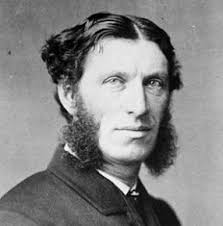Tags: Victorian
Matthew Arnold was a prominent Victorian who produced some of the greatest prose works of England that include the publication of Culture and Anarchy. He was more a prose writer than a poet and he always proved it with his works of literature. A devoutly religious person, Arnold was also a little perturbed with the growing influence of scientific discoveries which changed the narrative of the discourse so far. In many of his publications, prose of poetry, Arnold advocated for a balance that should be maintained between what would come and what had already come.

Born in 1822, Matthew Arnold belonged to a culturally rich family. His relatives, brothers and father, were all educated and occupied very prominent places in the society. Father was a headmaster and brothers were professors and novelist. It helped Arnold realise his potential and also grow in the field of literary writing. As I argued earlier, Arnold was more of a cultural critic than a poet.
His ventures into the field of poetry only could produce a minor number of major poems which still serve as a base for Arnold to be called a good poet in the Victorian era. The Scholar-Gipsy, Empedocles on Etna, Sohrab and Rustum are some of the poems which established Matthew Arnold as a poet in good terms. Others by him, produced as poetry, could not make that great an impact on the Victorian critics or the readers of poetry.
On the other hand, whatever he produced as prose gained immense respect in those days as well as continue to be read widely by the literary awakened people even today. Culture and Anarchy was the prominent one among his prose works. His work Essays in Criticism included some of the greatest essays written on poets and authors of the past. As a critic, Matthew Arnold was very well-read and is regarded as one of the few scholars in England who was understood to be very prominent in their knowledge of Latin, Greek and Italian literature.
Today, Matthew Arnold’s reputation is solely lying high on his works of prose and a few works of poetry. He wrote with passion and also with knowledge, whatever he wrote. Arnold, as a critic, gave the literary enthusiasts a method so well-known and respected, the Touchstone method of marking a literary work.
We will be remembering him for long for all the contributions that he made to English literature.
for Featured Authors by a contributor